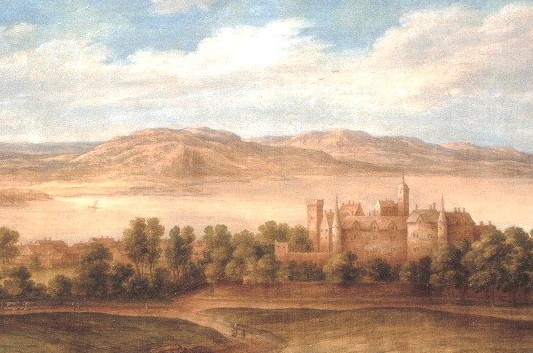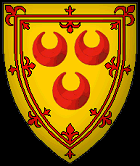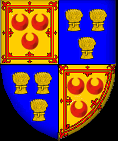|


The original line of the Seton's
devolved upon Sir Alexander the 3rd who married Christian Cheyne,
is known for the conspicuous part which he took in the defence of
his country against the invasion of the English as the Governor of
the town of Berwick, besieged by Edward III of England in 1333.
He succeeded in sinking and destroying by fire a great part of the
English fleet. The siege eventually converted into a blockade, and
as the supplies began to fail and starvation was imminent, the
Governor agreed to capitulate by a certain day, and gave hostages
among whom was his son, Thomas. However, before the
appointed period, a body of Scottish soldiers marched into
Northumberland, and Edward insisted that the town should be
surrendered. The besieged refused, and Edward, enraged at this
refusal caused Thomas Seton and his brother William (previously
captured) - to be hanged before the gate of the town. Another son
of Sir Alexander Seton fell in their country’s cause - during the
the attack on the English fleet at Berwick, July, 1333, leaving
only two sons remaining, Alexander and John. Sir John Seton, the
younger son founded the Seton's of Parbroath, and the eldest
surviving son, the 4th Sir Alexander Seton, married Margaret
Murray, and later sought refuge from his sorrows and troubles in a
hospital of the order of St. John of Jerusalem, his only child
Margaret becoming heiress of the extensive estates. She married
Alan de Wyntoun, a cadet of her own family, and this marriage led
to a sanguinary contest between rival, and disappointed suitors,
called ‘the Wyntoun’s war’ which according to Wyntoun, the
chronicler, caused more than a hundred ploughs to be laid aside
from labour. Alan de Wyntoun died in the Holy Land, and his eldest
son, Sir William Seton, was created 1st Lord Seton by King Robert
II. | |
 |
 |
Sir William, 1st Lord
Seton

Sir John Seton, 2nd Lord

George Seton, 3rd Lord

George Seton, 4th Lord
George Seton, 5th Lord
George Seton, 6th Lord
George Seton, 7th Lord

|